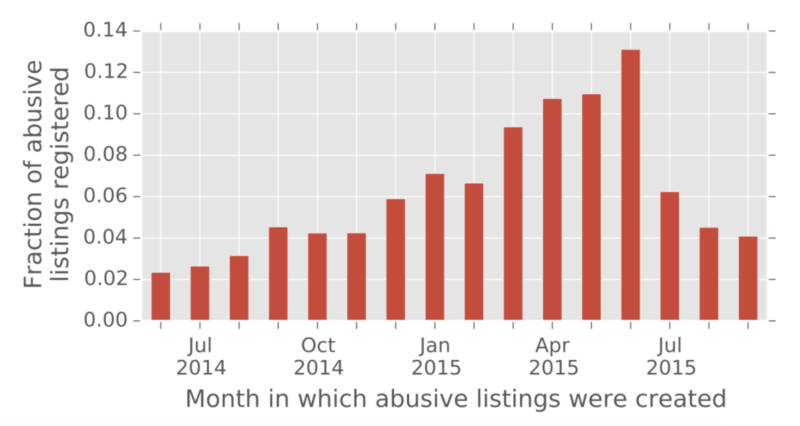Google says it has reduced fake Google Maps listings by 70% since 2015
Company cites machine learning and new business verification techniques as main reasons for the decline.

Google announced that they have heard about all the Google Maps spam issues over the years and have taken several steps to reduce the fake results in Google Maps.
Google said that while “fewer than 0.5 percent of local searches lead to fake listings,” they still want to reduce the chance of anyone finding a fake business on Google Maps. The new procedures have led to Google being able to detect and disable 85 percent of fake listings before they even appear on Google Maps. They also have reduced the number of abusive listings by 70 percent from their peak back in June 2015. (See chart below.) And they have reduced the number of impressions to abusive listings by 70 percent, Google said.
Specific measures Google added that help drop Google Maps spam include:
- requiring advanced verification for select business categories, such as locksmiths and plumbers.
- not allowing bulk registrations at most addresses.
- preventing businesses from relocating impossibly far from their original address without additional verification.
- detecting and ignoring intentionally mangled text in address fields.
- adapting their anti-spam machine learning systems to detect data discrepancies common to fake or deceptive listings.
Google will present the data from its report, “Pinning Down Abuse on Google Maps,” on Friday at the 2017 International World Wide Web Conference. The full report can be read online — look for the PDF download link in the upper right.
Related stories
